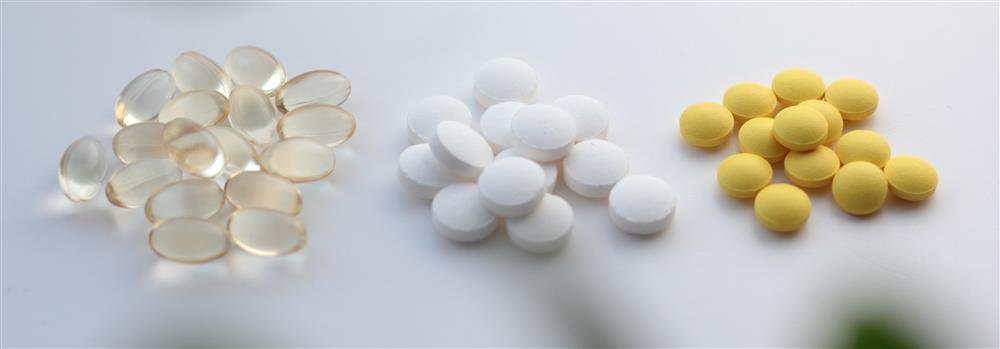According to The Sunday Times, experts are warning consumers over the dangers of “Super-Strength” vitamin and mineral supplements
What Is The Reason For Excessive Dosages? The principal reason for such high dosages is simple – Our ability to absorb these synthetic vitamins and inorganic minerals (mineral salts) is very limited, so the solution apparently, is to provide many times more than we need in the hope that we get a bit of absorption. But at what cost to our health?
Nature Doesn’t Create Nutrients In This Form: The simple reality is that none of these nutrients exist anywhere on this planet in live food, so why on earth are we eating them? At The Foodstate Company we’ve been cautioning consumers about this for years. The Sunday Times article mentions Solgar’s Vitamin D pills, which are providing 10 times the recommended daily dose. Vitamin D is an essential nutrient and one of its primary roles is to support bone strength (mainly because it helps us absorb Calcium). But in these excessive dosages, Vitamin D can actually damage our bones and also the kidneys and heart. In appropriate food form, Vitamin D is an essential vitamin. We are inclined to get sufficient in summer months because we create it when our skin is exposed to then sun. However, in winter we are prone to deficiency, in fact globally one billion people are estimated to be Vit D deficient with people in Europe - children especially –particularly at risk
Here’s what it does:
• Strengthens bones, especially with added calcium
• Protects children against diabetes type 1
• Protects against high blood pressure
• Protects against greater levels of pain
• Protects against cancer
• Improves physical performance
Concerns highlighted in The Sunday Times for other nutrients include Vitamin B1, B6, Vitamin A and Calcium. In nature, if you eat more of a particular nutrient than your body needs, it stores it or eliminates it perfectly naturally. If you take excessive amounts of nutrients that your body doesn’t recognise, it will try to eliminate it or store it, but may not be able to use it at a later date, because it remains a nutrient that your body can’t absorb. Foodstate nutrients are fully recognised, and stored for later use, or eliminated naturally

The concerns for each are briefly explained below:
Vitamin B1 (also known as Thiamine): It is uncertain whether excessive amounts are dangerous but Holland & Barrett’s are in 100mg tablets when the recommended daily dose is just 1.1mg
Vitamin B6 (also known as Pyridoxine): The chain’s brand contains 100mg tablets despite a recommended daily dose of 1.6mg. Excessive amounts of synthetic B6 can cause nerve damage and a loss of feeling in the arms and legs which can be permanent
Vitamin A: Excessive Vitamin A Causes Weak Bones and increased risk of hip fracture when in the common supplemental form of Retinol. North Europeans consume many times more retinol than Southern Europeans, and also have much higher incidence of osteoporitic hip fractures. So where do you get retinol from? This is the form of vitamin A found in many supplements, cod liver oil, fortified milk and other dairy products. Because animals make retinol from the plant precursor of vitamin A, known as beta carotene, unfortified dairy products and meat and fish (especially the livers) also contain significant amounts of this potentially toxic vitamin. Margarines are commonly fortified with vitamin A. What is Beta-Carotene? This is the plant precursor of Vitamin A, and the form in which Foodstate Vitamin A exists. In this form it is never toxic, even when consumed in larger amounts. Once again, nature always provides, and Vitamin A in its plant precursor form of Beta-Carotene is a healthy supplement
Calcium: One of the worst examples of excessive dosages in supplements is with Calcium tablets, often being as high as 1000mg. Human adults need 20mg to 30mg of food calcium per day. The 2 most common forms of supplement are calcium carbonate and calcium citrate. Neither are particularly desirable, but the most widely used – calcium carbonate – is nothing more than blackboard chalk, and we are not designed to ingest blackboard chalk! It causes gastrointestinal side effects like bloating, constipation and flatulence, and with long-term use can actually diminish bone mass density. Our Foodstate calcium is in 27.5mg capsules and is created as food calcium, not blackboard chalk!
Osteoporosis: Animal protein is a major factor in the cause of osteoporosis. Statistically, populations that consume large amounts of vitamin A also tend to consume large quantities of animal protein. Worldwide, the more animal protein consumed, the more hip fractures occur

How Does The Food Chain Work? The primary purpose of eating is to extract the nutrients from our food to allow our bodies to maintain every single function of the human body. Most disease is directly linked to nutritional deficiency, and we are well aware of our inadequate farm soils. An important first step is to have a healthy digestion, and our Probiotic E505 is worth taking every 6 months to achieve this goal (and always after a course of antibiotics). The food chain works as follows:
-
Plants extract inorganic nutrients from the soil through the hyphae on their roots (imagine minerals as miniature rocks)
-
They take these simple structures and add food components to them (different proteins, carbs, enzymes, flavonoids, fats, fibre) to fundamentally change their structure
-
These food components function as a delivery system to deliver the nutrient to a receptor site in the body
-
Foodstate supplements are created with these fully-formed delivery systems
Here’s What Happens With Synthetic/Chemical Nutrients in Supplements:
-
They are created in excessively large dosages
-
We’re instructed to take them with food in the hope that we get a bit of binding to the protein from already in our stomachs to allow modest absorption
-
They have no delivery systems and hence can’t bind to receptor sites in the body
And They:
-
Will never be a truly complete nutrient source
-
Will never replace all the functions of food vitamins and minerals
-
Will never be utilised, absorbed, and retained the same as food nutrients
-
Will never have the same antioxidant effects of food nutrients
-
Will never build optimal health in the same way as food nutrients
Conclusion: If you are concerned about inadequate nutrition in your diet, then Foodstate supplements provide the perfect solution in a healthy, safe and effective way, by providing fully-formed food nutrients in appropriately low dosages that the body can absorb, recognise and use properly







